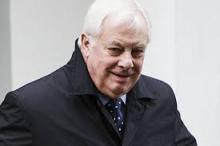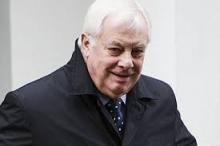Obama's Daunting Middle East Challenge
After eight years of misguided policy by the Bush administration in the Middle East, the time is overdue for an enlightened strategy to tackle the region's woes. This must include an approach that will bring hope to a region shattered by violence, consumed by conflict and division and filled with disdain toward the United States. Although the massive economic crisis facing America is and should be President-elect Obama's first priority, he must not hesitate to confront the simmering conflicts in the Middle East that cannot be relegated to the back burner without severely undermining the strategic interest and security of the United States and its allies.
Mr. Obama faces an incredible challenge to end the wars in Iraq and Afghanistan honorably, to restore hope to the Palestinian people, and to engage Iran and Syria constructively while fostering regional economic development. These are daunting tasks that may take several years to accomplish but must, nevertheless, be tackled no matter how impossible they may seem. Mr. Obama's promise for change must be implemented not only with the goal of restoring America's credibility and moral leadership abroad, but also with the intention to serve the United States' strategic interests and prevent a potentially major regional conflagration. America's new strategy in the Middle East must be comprehensive and integrated, utilizing all of America's diplomatic instruments and power while working with allies. While the United States must take the lead, it must also commit itself to a strategy of multilateralism working with other powers to orchestrate solutions to some of the most intractable conflicts that America alone simply cannot solve. The new American strategy in the Middle East must be developed with an eye on establishing comprehensive regional security in which the majority of, if not all, the states in the area will have a stake in maintaining.
In Iraq, the new administration must remain committed to withdrawing most of the American forces within sixteen months as envisioned by President-elect Obama, but with some flexibility provided that three critical criteria are first met. The Iraqi internal forces and the military first must be well-integrated and trained to maintain internal security and order. Secondly, it is important that the Sunnis are provided with the means to defend themselves and run their own internal affairs as they see fit akin to their Kurdish counterpart. Lastly, an oil law must be enacted providing for equitable distribution of oil revenue to all Iraqis. By pursuing these three objectives and aided by the lull in violence brought about by the surge of American forces, the Iraqis themselves will be more inclined to agree on political reforms and reconciliation. In addition, the United States should actively seek the involvements of Iraq's neighbors, especially Syria, Saudi Arabia, Turkey and Jordan who have stakes in Iraq's stability and a strong desire to bridge the Sunni-Shiite divide. Anything short of that would reverse much of the progress made to date, except this time with far greater intensity than ever before as American residual forces will be unable to prevent renewed violence. America has a moral obligation to leave Iraq reasonably assured of sustainable security and political stability. That much we owe the Iraqi people and the Obama administration must not settle for less.
In dealing with Iran, the new administration must create a strategy based on engagement and deterrence to prevent Iran from continuing to enrich uranium with impunity. The United States must initiate direct talks with Iran and end the threat of regime change in Tehran while making it abundantly clear that a nuclear Iran is not an option. This can be accomplished by pursuing three tracks of separate but interconnected negotiations. The first track should focus on negotiating an end to Iran's enrichment of uranium without preconditions, and what would be the economic incentive package provided in return. The United States should take the lead in these negotiations joined by its European allies along with China and Russia. The negotiations should be limited to three month period to prevent Iran from playing for time. The second track ought to focus on Iran's and the United States' grievances against each other. By constructively engaging Iran, Washington will help build mutual confidence, spur progress on the first negotiating track, benefit bilateral relations and encourage Iranian reformers to pursue democratic change without fear of retribution.
The third negotiating track should concentrate on regional security to alleviate Iran's national security concerns and reinforce the United States' commitments to the protection of its allies in the region. Should Iran, nevertheless, insist on continuing the enrichment of uranium, the United States must be clear about the extent of the devastating sanctions that will be orchestrated against it while not ruling out the use of force as a last resort. The United States must spearhead all three tracks without which future talks will be as elusive as the previous negotiations, except this time the West and Israel will be facing the unsettling prospect of a nuclear Iran with potentially dreadful consequences.
Since the 1992 Madrid peace conference the solution to the Arab-Israeli conflict has been hashed and rehashed ad nauseam and nothing fundamentally new can be said about the ultimate solution that will be framed. A Palestinian state established over Gaza and most of the West Bank with East Jerusalem as its capital, living side-by-side with the state of Israel--while finding a just solution to the Palestinian refugees -- remains the only viable solution. And the return of the Golan Heights to Syria is sine qua non to resolving the Israeli-Syrian conflict. But having a clear view of an Arab-Israeli peace does not reduce the potential risk of devastating war, which makes the need for a solution a pressing imperative. Here too, for the Obama administration to help orchestrate a peace agreement, it must accept the premise that America's active and direct role is indispensable.
The Obama administration must embrace the Arab Peace Initiative, initially adopted by the Arab League in March of 2002. Although the Road Map has advanced the Israeli-Palestinian peace process, embracing the Initiative remains critical for two reasons: because it represents the collective Arab will which can rein in Arab extremists, and because only a comprehensive peace with all twenty-two Arab states offers Israel the security it has sought since its inception in 1948. The Obama administration must persuade Israel to formally accept the Initiative, while assuring the Israelis that the US will guarantee their security and will insist on maintaining Israel's Jewish national identity under any peace formula.
The United States must play an active and direct role between Israelis and Palestinians by appointing a presidential envoy with a wide mandate that must stay in the region for as long as it takes until an agreement is forged. Throughout his two terms, President Bush sent over a dozen special envoys to the Middle East, yet none stayed long enough to allow for the consistency and continuity needed to keep both sides fully engaged. The new permanent envoy must be acutely perceptive of the histories of both people and have a keen understanding of the emotional, psychological and religious complexity of the conflict. This is particularly important as both sides suffer from serious psychological hang-ups about each other that ultimately prejudice their negotiating stance. Moreover, because of the endemic internal division and the existence of rejectionist groups in both camps, the Israeli and Palestinian governments need American cover to make the necessary concessions. A permanent envoy who can exert the necessary pressure and speak on behalf of the president can provide such a political cover.
The Obama administration must insist to Israel that ending the occupation of the West Bank also means an end to all settlement activity. The settlement expansion and the building of new outposts has been one of the major impediments to the peace negotiations in the past and has undermined Israel's credibility. While Obama has reiterated America's loyalty to Israel as its closest ally in the Middle East, he must also show that he can be an honest broker in the region when it comes to creating a Palestinian state. It is also of paramount importance that other Arab states in the region with good relations with Israel and the U.S. including Egypt, Saudi Arabia, Jordan and Morocco are engaged at the outset in all peace efforts. In addition, these states should contribute to the creation of a peacekeeping force to be stationed in Gaza and the West Bank to enforce the provisions of the peace agreement. Only Arab forces representing the collective interest of their states can rein in Islamists who are likely to continue to resist any peace accord with Israel until they are brought to heel. Such an Arab force should be sanctioned by the United Nations Security Council and preferably be placed under American command and monitoring to give Israel a greater sense of confidence in the durability of peace.
Contrary to the Bush administration's policy that has attempted to isolate Syria as it sought a regime change, the Obama administration must engage Syria directly and in doing so dramatically change the political dynamics in the region. Syria is the linchpin to weakening Hezbollah and Hamas and marginalizing Iran's influence in Lebanon and the Palestinian territories. Israel and Syria have made tremendous progress in their recent indirect negotiations mediated by Turkey. But Syria seeks normalizing relations with the United States. President Bashar al-Assad will be ready to enter into direct negotiations with Israel and conclude a peace agreement as soon as the Obama administration engages Damascus directly. An accord between Israel and Syria will also pave the way to a peace agreement with Lebanon, once Israel withdraws from Shebaa Farms, a disputed swath of land thrust between Israel, Lebanon and Syria.
Finally, any Arab-Israeli peace, however comprehensive, may not endure unless it is accompanied with an economic and humanitarian development program that will not only deal with the pressing need of millions of Arabs who live in abject poverty but foster political and human rights reforms. Moreover, there are many Islamist groups such as the Muslim Brotherhood in Egypt, Islamic Jihad, and Hamas in the Palestinian territories who will continue to exploit these social ills to foment resistance as peace with Israel runs contrary to their interests. The Obama administration with its European counterparts must reassess American and Western financial aid to many Arab states and implement programs of sustainable development. Ultimately the United States cannot afford to limit its presence in the region to military or government-to-government solutions and must aim to create comprehensive packages that include bottom-up solutions.
Although the people of the Middle East are ready for change and eager to forge peace to end decades of violence and suffering, they need a bold, visionary and committed American leadership to help them navigate through the treacherous road to peace. President Obama may have an historic opportunity to achieve what has eluded many of his predecessors.
If you wish to comment on this article, you can do so on-line.
Should you wish to publish your own article on the Facts & Arts website, please contact us at info@factsandarts.com. Please note that Facts & Arts shares its advertising revenue with those who have contributed material and have signed an agreement with us.
Please watch below Dr. Alon Ben-Meir discussing the Saudi-Arabia peace plan:




















